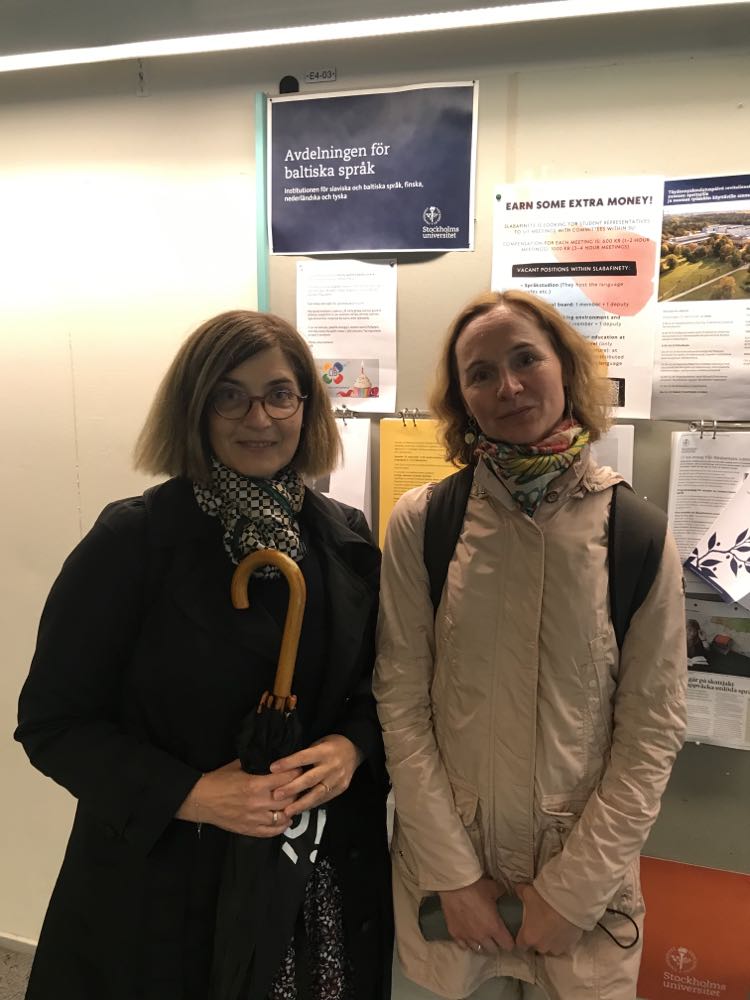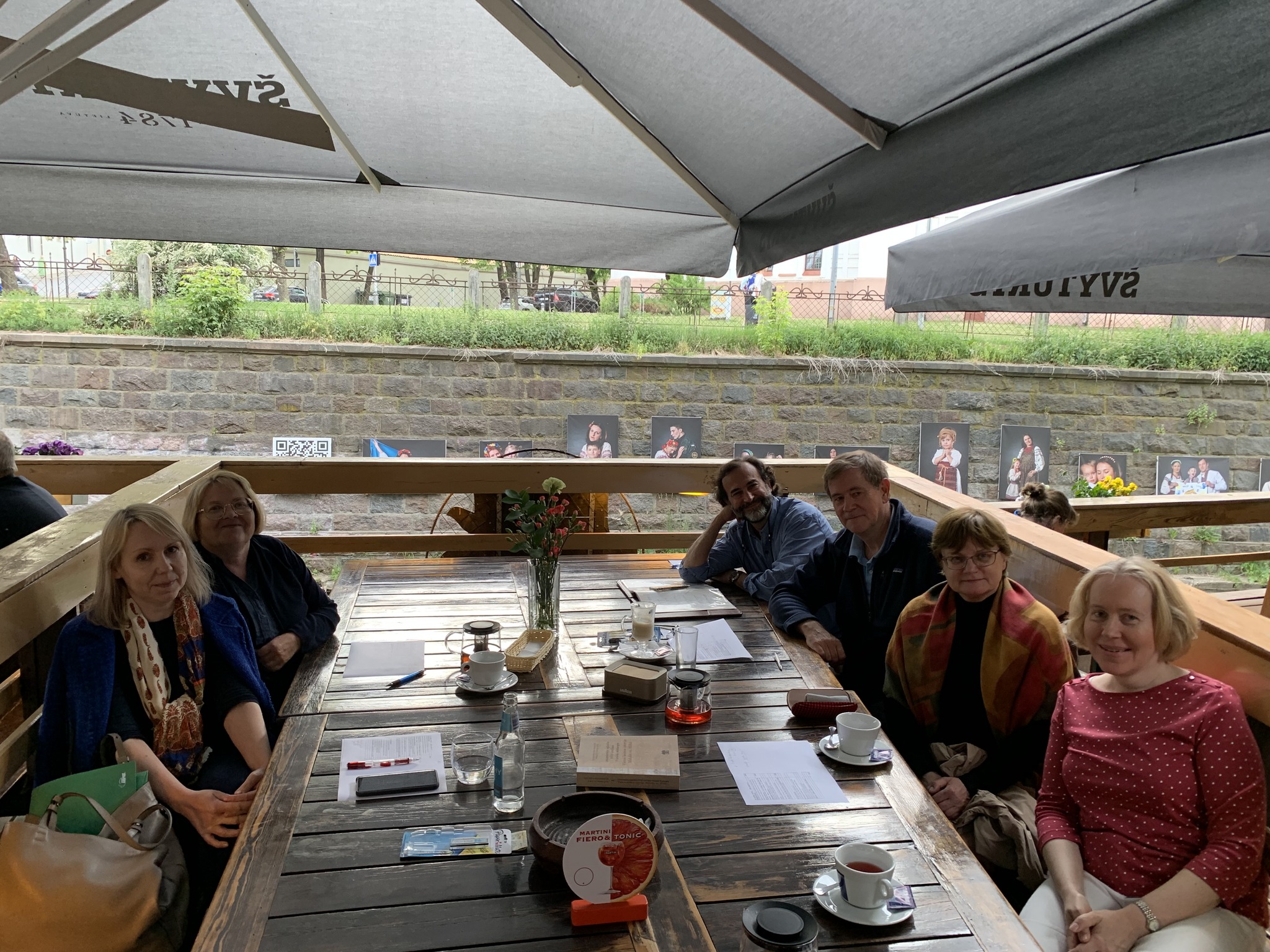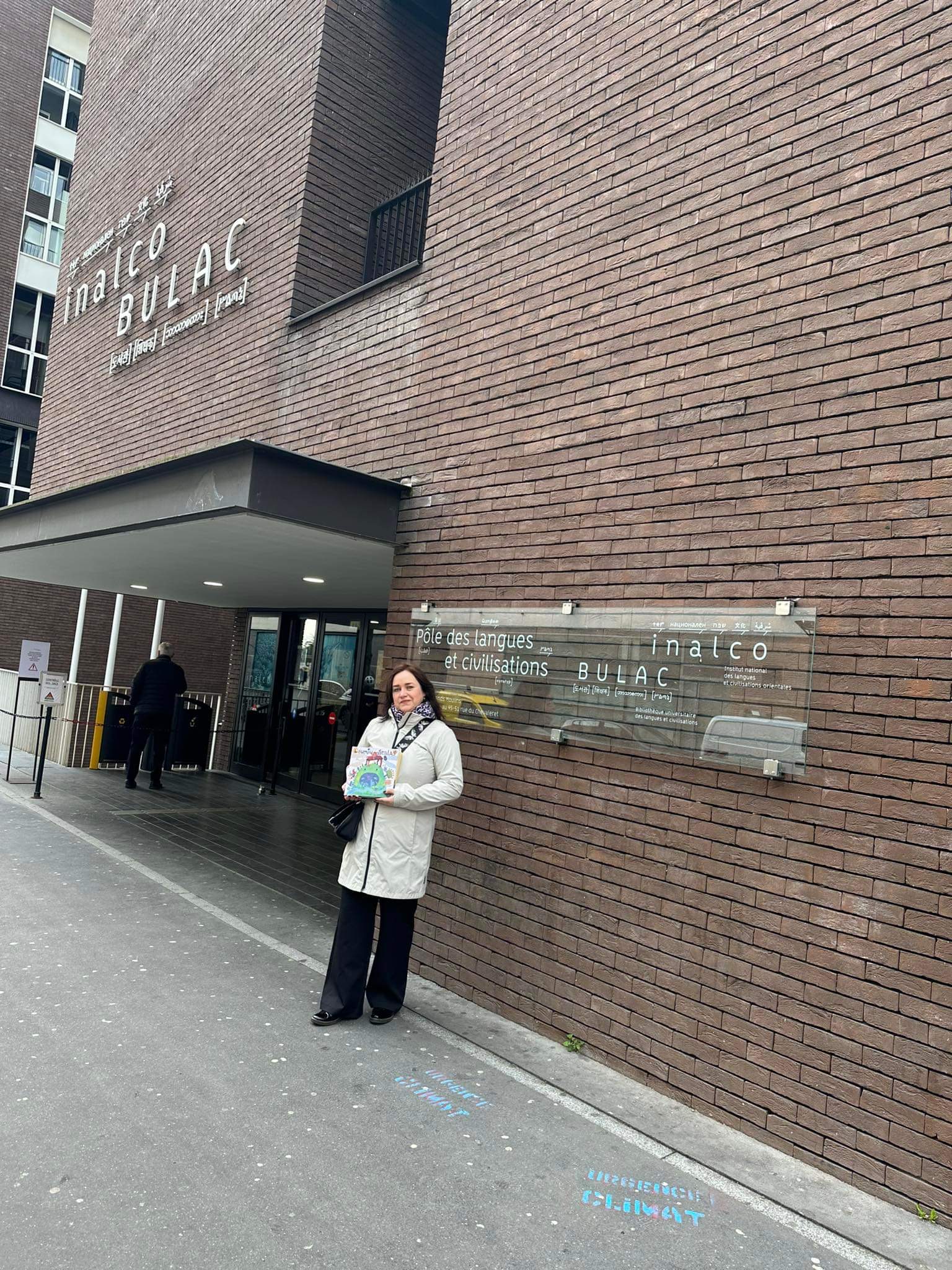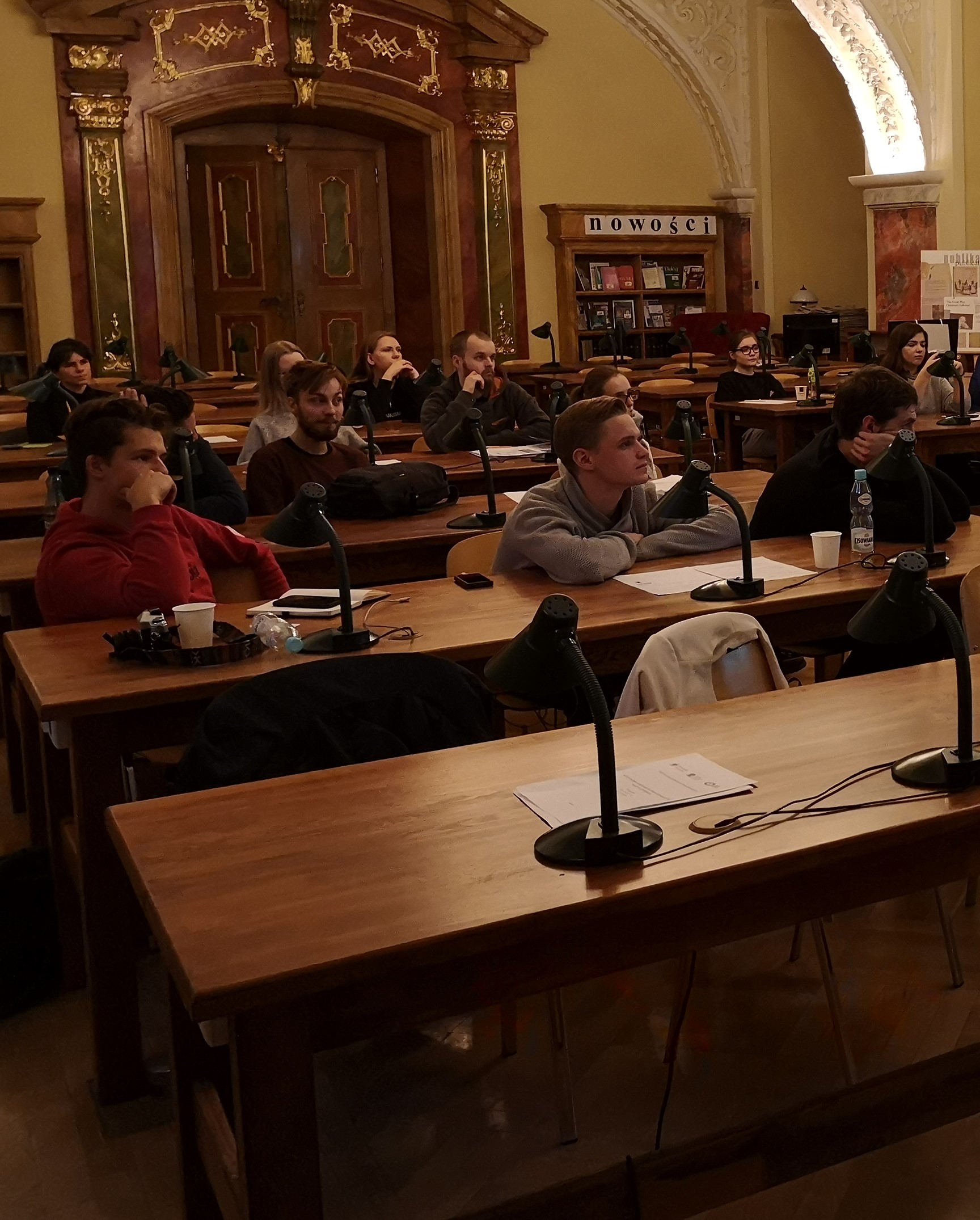Dr. Gina Holvoet and DR. Birutė Spraunienė visit to Stockholm University
On 2023 May 14-21 Dr. Gina Holvoet and Dr. Birutė Spraunienė visited Stockholm University, where they participated in meetings with colleagues of the Baltic Languages Department of the Slavic and Baltic Languages, Finnish, Dutch and German Institute.


Dr. Gina Holvoet and Dr. Birutė Spraunienė
Photographs from G. Holvoet personal archive
WARSAW UNIVERSITY STUDENT ANDŽĖJUS ŽAKAS VISIT TO VILNIUS UNIVERSITY
On 2023 May 14-21 Andžėjus Žakas, a student at the University of Warsaw, visited Vilnius University.
Assoc. prof. dr. Inesa Szulska visited the University of Vilnius
On May 24-30 2023 assoc. prof. dr. Inesa Szulska of the Department of Baltic Studies of the University of Warsaw visited Vilnius University.

Assoc. prof. dr. Inesa Szulska and Gina Holvoet
Photographs from G. Holvoet personal archive
Assoc. prof. dr. Pietro Dini visit to Vilnius University
2023 May 28-June 3 Assoc. prof. dr. Pietro Dini, the head of the Center for Baltic Studies at the University of Pisa visited Vilnius University.

Editorial board of the magazine "Archivum Lithuanicum"
Photographs from G. Holvoet personal archive
DR. ERNESTA KAZAKĖNAITĖ FROM VILNIUS UNIVERSITY VISIT TO GOETHE UNIVERSITY FRANKFURT
From the 5th to the 11th of June 2023, Vilnius University teacher Dr. Ernesta Kazakėnaitė visited Goethe University Frankfurt.
Dr. Ernesta Kazakėnaitė
Photographs from Ernesta Kazakėnaitė personal archive.
Prof. Dr. Igor Korolyovs visited Vilnius University
On 2023 April 29-May 6 Head of the Center for Baltic Studies in Kyiv, prof. Dr. Igor Korolyovs visited Vilnius University, where he met with students of Kyiv Taras Shevchenko University studying at VU.
Prof. Dr. Igor Korolyovs
Photographs from G. Holvoet personal archive
TEACHER TRAINING COURSE AT VYTAUTAS MAGNUS UNIVERSITY
On June 5, the teacher training course “Discovering Lithuanian Culture” strated in Kaunas. The course was joined by 25 participants from the centres of Lithuanian (Baltic) studies abroad as well as scholarly and academic institutions of Lithuania.


The teacher training course
Photos by Jurgita Macijauskaitė-Bonda
Lecturers of Vytautas Magnus University Visiting Washington University
On May 16-29, assoc. prof. dr. Rūta Eidukevičienė, dr. Jurgita Macijauskaitė-Bonda, and assoc. prof. dr. Laima Anglickienė, lecturers from the Faculty of Humanities at Vytautas Magnus University, visited Washington University in Seattle, USA.
During the visit, lectures on Lithuanian culture and literature were delivered. J. Macijauskaitė-Bonda and L. Anglickienė focused on the Lithuanian cultural objects included in the UNESCO list, whereas R. Eudukevičienė’s aim was to present migration and multilingualism topics in contemporary Lithuanian literature. Students were also invited to participate in the workshop of singing folk songs sutartinės.
On 20 May, lecturers also participated in the end of the academic year event organized by the Lithuanian school “Linas” in Seattle.
Photos by J. Macijauskaitė-Bonda, R. Eidukevičienė ir L. Anglickienė
DOC. DR. JURGOS BIKELIENĖ AND AGNĖ BALZAITĖ VISIT TO NATIONAL INSTITUTE OF ORIENTAL LANGUAGES AND CIVILIZATIONS IN PARIS (INALCO)
On 11-17 April 2023, dr. Jurga Bikelienė and Agnė Balzaitė visited National Institute of Oriental Languages and Civilizations in Paris (INALCO).


National Institute of Oriental Languages and Civilizations in Paris (INALCO).
Photos by Agnė Balzaitė
Dr. Jurga Trimonytė Bikelienė and Agnė Balzaitė VISIT TO UNIVERSITY OF WROCLAW
On March 24-30 2023, Dr. Jurga Trimonytė Bikelienė and Agnė Balzaitė from Vytautas Magnus University visited University of Wroclaw


Students of the University of Wroclaw
Photos by Agnė Balzaitė

